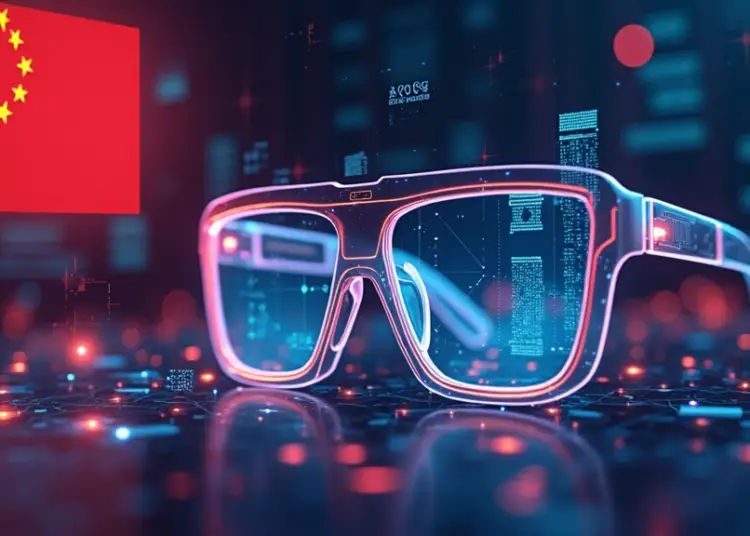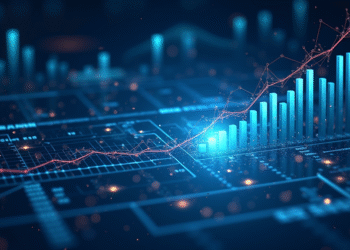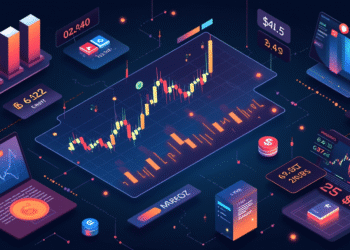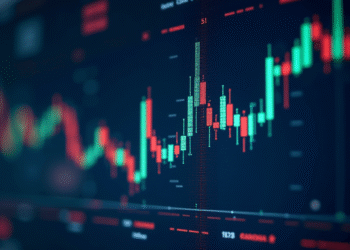In the fast-paced world of consumer tech news, significant developments are shaping the landscape of innovation and market dynamics this week. A critical focus is on the escalating tensions triggered by China’s proposed retaliation against Trump’s tariffs, which could lead to sweeping changes across multiple sectors. Simultaneously, Meta is stirring excitement with its upcoming release of a premium version of smart glasses, priced at $1,000, promising to challenge Apple’s dominance in augmented reality. As the industry keeps an eye on the latest iOS updates rolling out from Apple, the anticipation surrounding Nintendo’s Switch 2 launch is adding further intrigue to the gaming sphere. With looming automotive tariffs potentially reshaping manufacturing strategies, the intersection of technology and global trade remains a pivotal topic in consumer tech news.
This week’s updates in the realm of technology reveal a multitude of shifts that are captivating consumers and industry insiders alike. The latest reports spotlight growing tensions between the U.S. and China, particularly concerning tariff retaliation that could profoundly affect various market dynamics. In addition to the trade discussions, there’s much buzz around Meta’s imminent launch of its state-of-the-art smart eyewear, expected to be a game-changer in the augmented reality segment. Meanwhile, Apple’s recent iOS revisions are enhancing user experience, while gamers eagerly await the anticipated release of the next-generation Nintendo console. As discussions around automotive tariffs unfold, the implications for car manufacturers and tech-savvy consumers are critical areas of interest within this tech news circuit.
China Trade Retaliation: Impacts on Global Markets
China’s recent announcement of retaliatory measures against the United States‘ tariffs has intensified global trade tensions, particularly affecting the auto manufacturing industry. The 25% tariffs on automotive imports from China are likely to lead to increased production costs for American car manufacturers, eventually resulting in higher prices for consumers. In a rapidly globalizing economy, these tariffs not only disrupt supply chains but also threaten the stability of jobs within the industry. As manufacturers grapple with the implications of these tariffs, investors must remain vigilant about how such geopolitical shifts can influence stock performance in related sectors.
The ramifications of these tariffs extend beyond just the automotive industry. Companies like Ford are already adjusting their strategies to cope with rising costs, as evidenced by their decision to extend employee pricing to all shoppers. This kind of pricing strategy could potentially cushion the impact on sales, but it also raises concerns about profit margins. Market analysts are closely observing how these tariffs will shape the competitive landscape, prompting firms to rethink their pricing models and cost management strategies to remain viable in a changing market.
Meta’s Smart Glasses Release: A Game Changer?
Meta is set to launch an upgraded version of its smart glasses, priced at over $1,000, positioning itself as a strong competitor in the augmented reality (AR) market. This ambitious move comes in response to Apple’s successful foray into AR, aiming to capture a share of a booming marketplace that has seen increasing consumer interest. With enhanced features expected in Meta’s smart glasses, the company anticipates attracting tech enthusiasts and early adopters eager to experience the cutting edge of wearable technology.
The timing of Meta’s smart glasses release amid heightened competition from Apple could significantly alter the AR landscape. As more consumers look toward seamless integration of digital and physical realities, the functionalities of these smart glasses could redefine user experiences. However, the price point presents a challenge; for many consumers, a $1,000 investment may not seem justifiable without clear, compelling use cases. The success of this product launch may depend heavily on effective marketing strategies aimed at educating potential users about the advantages and innovative features that set it apart from existing products.
iOS Updates: What’s New and Improved
Apple has rolled out several significant updates with the release of iOS 18.4, iPadOS 18.4, and macOS 15.4, showcasing its commitment to enhancing user experience across its ecosystem. These updates bring a host of new features, security enhancements, and performance improvements that aim to streamline device functionality and bolster user privacy. With cybersecurity becoming a growing concern for consumers, Apple’s focus on safeguarding personal data reiterates its philosophy of placing user trust at the forefront of its technology strategy.
Additionally, these updated operating systems often spark discussions about the future trajectory of Apple’s product lines. Consumers and analysts alike are interested in how these updates can enhance device interoperability, especially as the demand for smart home integrations and seamless connectivity grows. As Apple continues to innovate, its competitors are also likely to follow suit, leading to an arms race in the tech industry — whether in new features or in prioritizing security and user privacy. This dynamic ongoing evolution effects all stakeholders in the tech ecosystem.
Nintendo Switch 2: Anticipated Features and Pricing
The much-anticipated announcement of the Nintendo Switch 2 has set the gaming world abuzz, particularly with its confirmed launch date of June 5 and a retail price of $450. This sequel aims to build upon the success of its predecessor, introducing advanced processing capabilities and an upgraded gaming experience. A bundled offering that includes a digital copy of Mario Kart World priced at $500 suggests Nintendo’s strategy to appeal to consumers seeking value in their gaming investments while ensuring a broad range of options that cater to various budgets.
As the gaming landscape evolves, gaming giants like Nintendo must leverage their franchises and brand loyalty. Expectations are high for the Switch 2, as gamers look for enhanced graphics, faster load times, and greater compatibility with emerging technologies. Success in this launch may not only drive sales in the immediate future but also solidify Nintendo’s position in the increasingly competitive gaming market. Observers are keen to see how the Switch 2 will fare against competitors like the PlayStation 5 and Xbox Series X, especially considering the growing consumer demand for innovative gaming experiences.
Automotive Tariffs: Short and Long-term Implications
The introduction of new automotive tariffs has significant implications for car manufacturers and consumers alike. In the immediate term, these tariffs can lead to increased vehicle prices, as manufacturers factor in the additional costs imposed on imported materials and parts. Trade groups and automotive unions are voicing concerns over these changes, drawing attention to potential job losses and economic repercussions for industries reliant on automotive manufacturing. The uncertainty surrounding these tariffs can lead to volatility in stock prices of major automotive companies, prompting investors to carefully consider their strategies moving forward.
In the long term, the automotive industry may need to adapt strategies that mitigate the effects of tariffs, potentially by reshoring manufacturing or diversifying supply chains. Companies are likely to invest in technology and processes that allow for more localized production to reduce reliance on foreign parts, which could have significant implications for labor markets and the overall economy. It will be essential for stakeholders to remain informed about evolving trade policies and market responses shaping the future of automotive production in the U.S. and globally.
Tech Market Analysis: Shifts and Opportunities
Current trends in consumer technology highlight shifts in market dynamics, particularly amidst rising inflation concerns and changing consumer behaviors. Companies are increasingly focused on developing innovative products that cater to the evolving needs of tech-savvy consumers. For instance, the implications of trade tensions and new tariffs prompt firms to consider where to best invest their resources — whether in advancing product features, enhancing customer experience, or expanding into new markets. The outcomes of these decisions will shape business strategies for years to come, creating both challenges and opportunities.
Amidst these changes, investors and analysts are keenly observing how these trends play out across various sectors in the tech industry. Investment opportunities may arise in sectors that prioritize sustainability and technological advancement, particularly in AI and smart devices. As companies like OpenAI attract substantial funding rounds, highlighting a strong interest in innovative solutions, new players entering this space must showcase their value propositions to compete effectively. Understanding these market dynamics is crucial for stakeholders looking to position themselves advantageously in an ever-evolving tech landscape.
The Future of Social Media Influencers in Tech
The impact of social media influencers in the tech space is undeniable, with figures like MrBeast shaping discussions around technology trends and consumer products. As influencers continue to gain traction, their ability to steer public perception can significantly affect brand reputations and consumer choices. Recent events, like MrBeast’s viral prank, although intended humorously, demonstrate the power and reach influencers wield. Brands are increasingly partnering with these personalities to drive product awareness and foster connections with younger audiences who prioritize authenticity.
However, the reliance on social media personalities also poses risks. The volatility of popular opinion can lead to rapid shifts in consumer loyalty and engagement. Brands must navigate these waters carefully, balancing collaboration with influencer marketing strategies that align with their overall messaging and product values. As the tech landscape evolves, understanding the relationship between influencer cultures and consumer behavior will become increasingly important for tech companies aiming to remain relevant and competitive.
Investing in Tech: Navigating Market Changes
As technology continues to advance, investors must navigate the uncertain waters of market dynamics and emerging trends. With companies like Intel embarking on significant production milestones, investors are weighing the potential implications for returns and portfolio diversification. Analysts advise a diligent approach, urging investors to stay informed about the latest developments, such as Intel’s progress or the reactions to new iOS updates, that can shape overall market conditions.
Furthermore, the landscape is littered with investment opportunities spurred by innovations in AI and machine learning. Companies that excel in these domains are likely to attract substantial investment, reminiscent of OpenAI’s recent successes. However, caution is warranted; just as opportunities arise, volatility can swiftly erode market confidence. Thus, a balanced strategy that includes thorough research and an openness to pivot is essential for anyone aiming to thrive in the complex world of technology investments.
Consumer Tech News Trends to Watch
In the ever-evolving realm of consumer technology news, staying ahead of emerging trends is crucial for both consumers and investors alike. Key developments, such as Meta’s planned smart glasses release, have sparked discussions on the direction technology may take. With high-profile launches and updates regularly reshaping the market, consumers need to stay informed about how these innovations could impact daily life, from entertainment to communication.
As trade tensions continue to influence technology markets, areas of focus such as tariffs and new product releases will dominate consumer tech news. Analysts are closely monitoring how these developments will affect pricing and availability across tech products and how companies adapt to maintain competitiveness. Consumers and stakeholders should watch for trends that can offer insights into future innovations, helping them prepare for the rapidly changing world of consumer technology.
Frequently Asked Questions
What are the implications of China’s trade retaliation on consumer tech news?
China’s trade retaliation, particularly against Trump’s tariffs, could lead to increased prices for electronics and consumer tech products imported from China. This escalation in trade tensions may also affect supply chains for major tech companies, influencing product availability and pricing strategies in the consumer tech market.
How will the release of Meta’s smart glasses impact the consumer tech news landscape?
Meta’s upcoming release of smart glasses priced at over $1,000 positions the company to compete directly with Apple’s augmented reality products. As consumer tech news covers the launch, it may shift market dynamics, particularly if these glasses offer innovative features that attract tech-savvy buyers and influence future AR developments.
What features are included in the recent iOS updates impacting consumer tech?
The release of iOS 18.4 introduces several new features that enhance the functionality and user experience of Apple devices, contributing to ongoing consumer tech news. As users adopt these updates, brands must respond to changes in user preferences and software compatibility, shaping their product strategies in the competitive tech landscape.
What details do we know about the Nintendo Switch 2 launch in consumer tech news?
Nintendo has confirmed that the Switch 2 will launch on June 5, priced at $450, with a bundle option at $500 that includes a digital copy of Mario Kart World. This highly anticipated release is generating buzz in consumer tech news as gamers look forward to new features and improved performance, potentially impacting sales strategies for competitors.
How are automotive tariffs impacting consumer technology companies?
The 25% tariffs on auto imports have implications not just for automotive manufacturers but also for consumer technology companies that rely on automotive tech, like in-car entertainment systems. As these tariffs increase costs and potentially disrupt supply chains, consumer tech news will closely track how companies like Ford adjust their pricing strategies and product offerings.
| Key Update | Details |
|---|---|
| TikTok’s Future | White House meeting to discuss TikTok’s sale or potential U.S. ban by April 5. |
| China’s Retaliation | China to respond to Trump’s tariffs with measures affecting auto imports and rising trade tensions. |
| Nintendo Switch 2 | Launch date announced for June 5 at $450, with a $500 bundle including Mario Kart World. |
| New Apple Releases | Apple releases iOS 18.4 and other updates, introducing new features. |
| MrBeast Prank | YouTube star’s April Fool’s joke references charity work but causes a stir. |
| Ford’s Pricing Strategy | Extending employee pricing amid new tariffs to soften sales impact. |
| Meta Smart Glasses | Meta plans to release smart glasses priced over $1,000 to rival Apple. |
| Intel Production Update | Intel moves to risk production for its 18A process node at Vision 2025 conference. |
| Microsoft Development Halt | Postponed location discussions in regions including Indonesia and UK. |
| Google Policy Changes | Removed mailing list for Bitcoin developer group due to policy violations. |
| TSMC and Intel Stake | TSMC acquiring a 20% stake in a joint venture with Intel amidst financial challenges. |
| AI Developments | OpenAI secures major funding, Sentient unveils AI search framework to rival DeepSeek. |
Summary
In the latest consumer tech news, recent developments highlight significant shifts in the market landscape from March 31 to April 4. With escalating trade tensions between the U.S. and China over tariffs, companies are navigating a complex environment. Notably, the future of TikTok hangs in the balance as the White House deliberates its status before the impending April 5 deadline. Meanwhile, tech giants like Meta are innovating, with plans to release premium smart glasses, reflecting a growing competition in augmented reality. As companies like Ford adapt to new pricing strategies amidst tariff challenges, the consumer tech industry remains responsive to shifting economic conditions.













